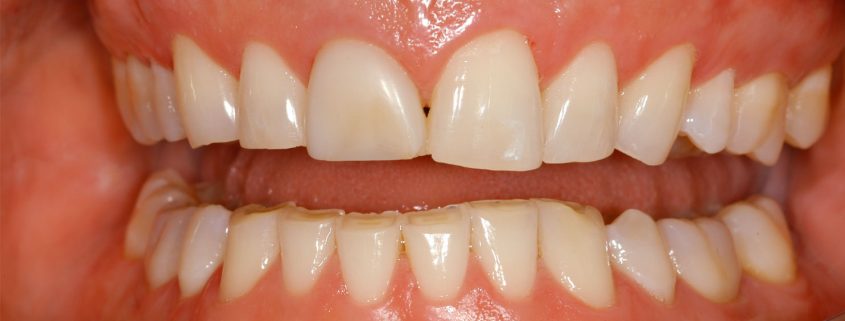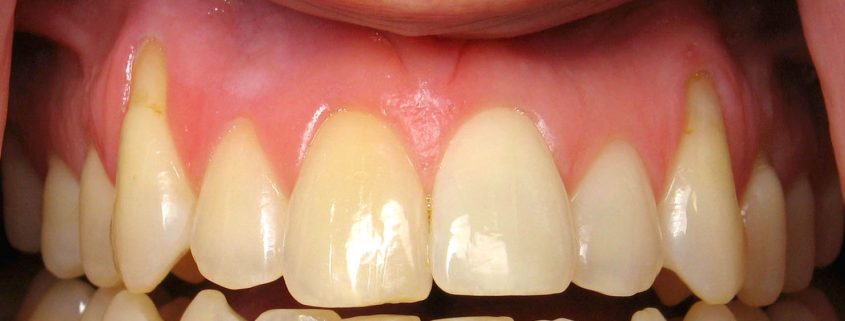Top 10 Dental Questions You Should Ask
From a very early age, you’re encouraged to ask questions – to parents, in school and especially in the dentist’s office. But when in medical environments, asking dental questions is an important part of your long-term healthcare. Here are 10 you should ask.
1. How Can I Improve the Whiteness of My Teeth?
A beautiful smile showing clean, white teeth give a tremendous boost to your confidence. Most people experience some discolouration of teeth over the years, either from surface or extrinsic stains or internal ones. Treat stains caused by coffee, wine, tobacco and pigmented foods with at-home whitening or have a professional, in-office whitening done regularly. For intrinsic discolouration, consider composite bonding or the application of veneers to the affected teeth, which provides a more permanent solution.
Professional, in-office teeth whitening is the most popular cosmetic dental procedure in the world today. Unlike home-use systems that incorporate low-dose bleaching agents, in-office whitening takes place under carefully monitored conditions which allow for the safe, controlled, pain-free use of a relatively high concentration of bleaching gel – yielding results that are visible immediately.
2. How Often Should I Get a Dental Checkup?
Dental health varies from person to person, but the Canadian Dental Association (CDA) recommends adult patients visit a dentist twice a year even if their mouth is in excellent condition. This enables you to get your teeth cleaned professionally on a regular basis and ensure that any potential problems are identified early.
Having to visit the dentist every six months may not be the appointment that everyone looks forward to, but it is one of the most important ones to keep. If you have found yourself wondering what the point of having regular dental checkups and cleanings really is, we’ve got something for you to think about.
If you are considering skipping a dental checkup because of cost or another factor like time or dental anxiety, make sure to consider all the risks. What you might end up paying in the long run for not visiting your dentist will likely be much higher, both for your wallet and your peace of mind.
3. What Are the Best Ways to Practice Good Oral Hygiene at Home?
It’s vital that all adults engage in daily brushing and flossing, but to take your oral hygiene to the next level, follow a handful of particular steps to good dental health. These include:
- Using products that contain fluoride.
- Limiting snacks that are high in sugar.
- Eating a balanced diet of fruits and vegetables.
- Avoiding tobacco in any form.
4. Why Should I Have Dental X-Rays Taken?
Your dentist takes a full set of dental X-rays early into the doctor-patient relationship. This helps to examine and record your mouth’s hidden areas for issues that need comparing against changes that occur between appointments. Most adult patients have bitewing X-rays every year and a full mouth series every four to five years. But those with a higher risk for dental caries problems may need them every six to 18 months.
Dental x-rays are a common diagnostic procedure that is considered extremely safe. Digital dental x-rays have very low doses of radiation, producing just a fraction of what you are exposed to in other imaging procedures. If you’re worried about whether you need dental x-rays, or wondering if you should forego this procedure due to other medical conditions, it’s helpful to dive a little deeper into what dental x-rays involve, why they’re performed, and how they’re best handled.
When these x-rays are performed properly with adequate safety precautions in place, there’s very little cause for concern. A routine examination with four bitewing x-rays exposes you to roughly the same amount of radiation you will experience during one to two hours on an airplane.
5. How Do I Prevent Tooth Decay, Gingivitis and Other Problems?
The best way to ensure a healthy mouth is to follow a balanced diet and visit the dentist regularly – while maintaining your oral care routine twice a day. Conditions such as diabetes or HIV/AIDS can also affect your dental health, as well as medications and certain types of chemotherapy. Protect yourself against problems that can advance quickly by discussing these dental questions with your practitioner.
- Brush your teeth twice a day: You should brush your teeth each morning and night, no exceptions. Teeth brushing is vital to prevent excessive plaque build-up that leads to cavities and periodontal disease. Use a manual or electric brush with soft bristles to gently brush the outer surfaces of your upper and lower arches, the inside surfaces of teeth, and the top chewing surfaces of teeth. Use up and down motions and take your time to carefully reach all areas.
-
Use anti-bacterial mouthwash: The sugars and starches in your foods and beverages react with the bacteria in your saliva to form an acid that erodes your tooth enamel. Anti-bacterial mouthwash helps manage the bacteria levels in your mouth.
- Floss your teeth daily: Flossing is an effective way to prevent tooth decay and gum disease.Teeth brushing only does so much to clean your teeth. Flossing is essential to clean the small crevices, spaces between teeth and the gum line of food particles that lead to cavities and gum inflammation.
-
Strengthen your enamel with fluoride products: Tooth enamel is your tooth’s natural defense, an outer protective layer. When the enamel wears away, your tooth becomes susceptible to cavities. Fluoride products like fluoridated water, fluoride treatment or fluoride toothpaste help prevent cavities.
6. What Is Tooth Sensitivity and Why Do I Have It?
Patients with tooth sensitivity feel pain when they consume items that are hot or cold, sweet or acidic. This comes from thinned tooth enamel, which doesn’t protect the tooth pulp or dentin from exposure to extreme temperatures. In some patients, this may be a result of:
- Receding gums
- Tooth grinding during sleep
- Chipped or fractured teeth
- Tooth whitening
- Orthodontics and fillings
Your dentist will examine the affected teeth and recommend treatment to reduce your sensitivity.
7. Why Should I Consider Dental Implants?
Dental implants are the ideal way to replace missing or weakened teeth. Most adult patients are good candidates for implants because they can help to prevent the remaining teeth from moving or loosening as a result. Implants are permanent and serve as a good alternative to dentures for anyone with an otherwise healthy mouth and jaw.
A dental implant is an artificial root made of titanium metal. It is inserted into the jawbone to replace the root of the natural tooth. An artificial replacement tooth is attached to the implant. The implant acts as an anchor to hold the replacement tooth in place.
8. Should I Use Mouthwash Regularly?
Cosmetic mouthwashes are aimed at freshening breath and maintaining a healthy color, but they contain fluoride to help fight cavities as well. Therapeutic rinses can also treat conditions such as gingivitis, tooth sensitivity and inflammation caused by chemotherapy. For more advanced conditions, prescription mouthwashes often contain chlorhexidine gluconate to kill bacteria that cause bleeding, inflammation and the formation of plaque.
Mouthwash is not recommended for children younger than 6 years of age. Swallowing reflexes may not be well developed in children this young, and they may swallow large amounts of the mouthwash, which can trigger adverse events—like nausea, vomiting, and intoxication (due to the alcohol content in some rinses). Check the product label for specific precautions and age recommendations.
9. At What Age Should My Child First See a Dentist?
Studies show children can develop their first cavities by two years old, so the Canadian Academy of Pediatric Dentistry recommends booking the first visit once their first tooth erupts – or, at the latest, their first birthday. This helps your dentist catch potential problems that can affect the child’s overall health and well-being as more teeth erupt over time.
10. When Do Their Baby Teeth Typically Fall Out?
Most children begin losing their baby teeth between the ages of six and eight, and they typically fall out in roughly the same order in which they erupted. Keep in mind that all patients are different. Children’s and adult’s oral condition depends on how long they’ve gone without an appointment, how long your kids’ baby teeth last and even some things to which you are naturally more sensitive. With these questions queued up, you’ll never be in doubt as to the state of your mouth’s health.



